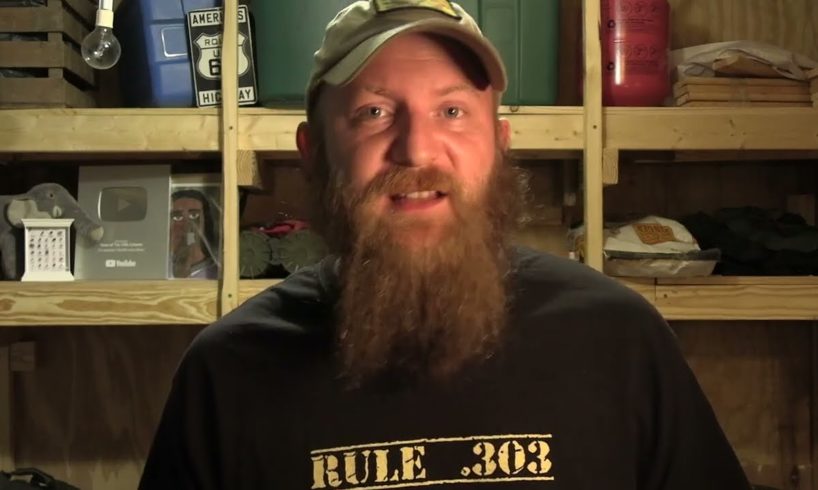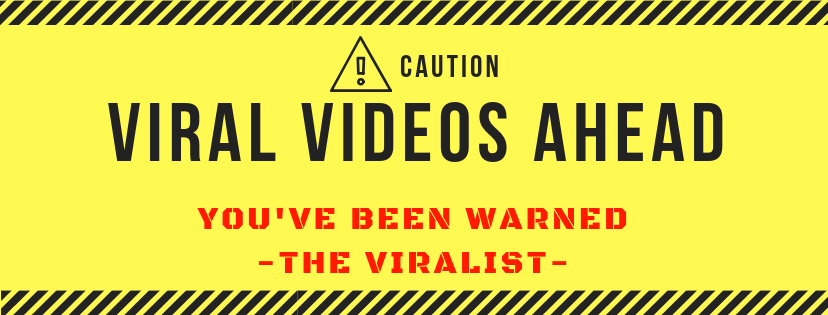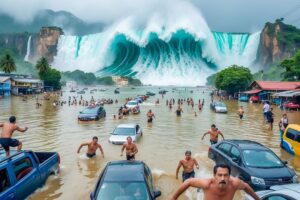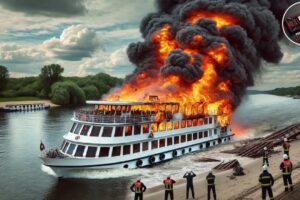
Support via Patreon: https://www.patreon.com/beautfc
The Roads with Beau: https://www.youtube.com/channel/UC_x7nc3Vi4BPgmNnMsz774A
Check out the store. Stickers, mugs, hoodies, shirts, etc.
https://teespring.com/stores/beau-of-the-fifth-column
Check out the podcast: https://anchor.fm/beau-of-the-fifth-column
source







New mics will be here Thursday and it'll be easier to hear then.
There’s a great book that talks about these exact things; “A Paradise Built In Hell”👏👏👏👏 Thank you Beau✊🏽
Sounds great, problem is where i live no natural disasters happen ever. Western european city, no hurricanes or tornados, very limited forest fires, and flooding only in very limited areas and not where i live. Firefighters here als mostly dealing with car crashes. I used zo be a junior fire fighter and that was nice, but thats all voluntary
Enlightening for sure. Watched it twice!
disaster relief people being kinda relaxed is absolutely true. Once you've seen enough gutted buildings, the colors of the facade and of the wallpapers tend to loose importance….
I recently reread the reports on the 2011 Japan earthquake and it struck me that back then most of the world probably didn't realize how terrifying this thing was. It underlines just how well prepared and organized the Japanese are that they could take that sledgehammer to the face and stay mostly standing; in other parts of the world this might have caused civilization to more or less break down.
Beau sorry for some reason your volume was very low, auto captions only worked a little, assume talking about how Aussies set up for these events, we have to work closely due to isolation, is one of the main reasons we worked together so well in fight Covid. We have a great model that America could use look up SES we all have our own branch.
I thought I fully understood what you were saying about people not being able to adapt; I fully agreed.
Then you said the part about going behind the counter…
I am dumbfounded to the extent of the lack of ability to adapt displayed in that example.
The first thing you do, after securing the safety, is take inventory.
How had none of those people worked behind a counter before?
Has society really clawed out their personhood that much?!!?
Like I know I upset some new employees at my local fast food joints when I reach over the counter to get my own ketchup (I've known the managers for over 2 decades) but sheesh, to be sheltering and not have the knowledge that there, by law in the USA, must be a first aid kit is so shocking to me. To know that society has failed them so completely has me stunned.
"…and on this day [my] he(A)rt grew 3 sizes…"
There really seems like no hope for the current society if that society cannot even make aware its people. I try really hard not to be swayed to a complete circle around that "A" …
But every day it seems like the only way.
Shit gets real in a disaster. Society breaks down in 2 weeks. Lord of the flys. But exactly what's your point? It always seems like your talking to children. Aawww Justin works with the right some if the most charitable people around. One day your preaching and race baiting the next your telling the flock the rights not bad at first then they get paranoid. So what is it are they good people or white supremacist racists ? I've seen my share of disasters I wouldn't wish it on anyone.
ty
If someone points a weapon at you when you're trying to help them, they don't deserve your help.
I'll be participating in Wreaths Across America this weekend and do not look forward to the crowd that will be there. Guess I'll have to decide between my Rule 303 and I'm the dissident your government warned you about shirts… always take the chance to spread Beau's message around that crowd.
During hurricane Andrew I had bbq's in the front yard and invited everyone for free food. I had a line of women waiting to take showers because I has a gas heater. Yea it was actually a fun moment in time.
You just, to an extent, described parts of what occurs, what one's experiences are like, in combat.
This has challenged my hearing to its limits
i asked about this as well in a comment! thank you for doing a video on it.
I found this so fascinating that I've watched it twice already and I'm probably not done.
I'm not much of a activist, but I totally get it. I've done disaster response for years in the DOD and have definitely seen how much better it made me at everything that matters.
Times to Build Back Better for America !So better starting passing some money bills and United America is needed NOW !Not Rightwing Cult.
What are good ways to be involved in things like disaster relief and other volunteering and activist works, aside from donating, for someone who isn't very able-bodied, doesn't have much spending money, and has unreliable transportation? I feel bad for not doing enough to help.
Been chased and bitten in the tail feathers by suddenly free range doberman pinchers. They're fast and dedicated.
Oh man, you get it! I have been working in disaster response and preparedness for over a decade, working 49 DROs (disaster relief operations) and you summed the job up perfectly. Disaster response is the most challenging and amazing thing there is. I won't go into the long, long story of how I got into the field, but suffice it to say that responding to disasters and helping people prepare for them quite literally saved my own life. It is just beyond anything that I had ever done before and has inspired me so much that I'm currently in graduate school and will get my Master's Degree in Emergency Management and Disaster Response next July at the age of 52. It really is that transformative.
I did some disaster relief in SWLA after Harvey. “Transformative” is an understatement. I’ve never been in a situation where people were grateful to strangers for throwing everything they owned into a pile by the curb.
I’ll never forget how one family piled everything into the center of the room and put the prized family piano on top of the mound so that it would be saved from the flood water. While we mudded out the house, tore down walls, and ripped up tiles, the mom of the family played Amazing Grace on that piano. It was the most sobering music I’ve ever heard in my life.
One of many reasons I love listening to you is because you really care, and you act on that.
You should be able to adjust the gain/vol under source inputs?
☑https://youtu.be/o9ug-2jklRQ
Beau, you need to increase the volume of your videos. The volume of your last few videos has been to low.
Beau, I am having trouble hearing you. Fix your mike. By the way, you are first on my list.
good message beau, thanks for sharing
As the years roll on, we're all going to get a chance to learn this first hand, aren't we?…
My first was OK city after the first 5 (99' maybe) tornado. Most of what I did was cook chicken in a chain food truck that was providing food or volunteers. Second was after the fire in Black Forest CO. Sifting through ash one shovel at a time in a screen in what was left of someone's house foundation looking for keepsakes, wedding ring, anything salvageable for them.
Sounds like something that fully reshapes your perspective on humanity.
I work for a first responder and they always ask people not to self-deploy to a disaster area. You mentioned working with an experienced person and that’s a really important part. People who go to help with the best intentions often become a liability, so if this is something you want to do, sign up with an organization ahead of time so they can deploy you if disaster strikes.
Hope those mics get in soon. Thought I was deafer than usual this week. 🤨📯
I am reminded of my late father's advice when I was in a bad patch: "You have to remember … you're not the first person to face trouble in this life." It sounds callous but it was what I needed to hear. I knew that he and my mother had, separately and together, faced far worse. It put my concerns in perspective.
I can't imagine that point being driven home more clearly than to work in disaster relief.
"I slept and dreamt that life was joy. I awoke and saw that life was but service. I served and understood that service was joy." – Rabindranath Tagore
I thought you meant 'transformative' for those situations where there is utter devastation and the entire area needs to be rebuilt (hopefully with government aid). This 'could' greatly speed up a decades long rehabilitation process in areas where no real money has been spent on those efforts. While the emotional and personal impacts are greatly more negative in those situations, it could lead to positive outcomes from an infrastructure perspective and could transform a community to be a new image of its former self. Just a thought…
My first disaster volunteerism experience was in the 1999 Izmit, Turkey earthquake for 8 days as an independent volunteer. That was followed by volunteering 8 days in the 2010 Haiti quake, the 2012 hurricane Sandy relief and then the 2016 Jalisco, México hurricane Patricia relief.
I think disaster volunteerism is the one of my best decisions.
“People often see volunteerism as a selfless act. I feel guilty when people thank me for volunteering because it is anything but a selfless act. It is quite selfish. I have never been able to give as much as I have received by reaching out. I have worked around countless other volunteers who feel the same way.” — Tom Gerdy
Rule .303: I shot them because I could.
Disaster relief according to Trump: lobbing paper towels into a crowd.
In the last few days the volume of your presentations has dropped to a whisper, do you have any control over that?
"First Responder" scenario is what you are explaining. Disaster relief situations you volunteer for is exactly what they do on a regular basis, speaking as a FD side of perspective.